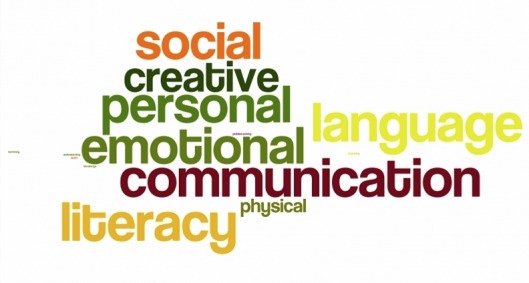|
I'm now part of the network exploring the SROI model of social returns on investment. It's way of putting monetary values on the sorts of evaluation and participation outcomes that occur in the projects I work with, and demonstrating what difference the investment has really made - what happened that coulnd't or wouldn't have happened without.
It's also a way for me to offer organisations the sort of robustness they might expect from an academic research team. A lot of it will be new to me but I'm hoping it will ad a layer of technical formality to the likes of MLA's Generic Social Outcomes. Indeed MLA have already commissioned large scale pilot evaluation projects testing SROI's capacity for analysing the values of specific library and museums schemes. Exploring qualitative outcomes, impacts and benefits is something I really enjoy. There are times though, when stakeholders need more quantifiable results and this should enable me to provide that too. SROI has been developed, and continues to be developed by it's members, to support arts and culture, public services, science and education - all of which are fields I work with. It also supports employment and business, environment and climate, and health and care. So I hope this means it will become a tool that is recognised across all organisations. I should add though, that for me this will be an additional way of identifying what works and where things can be improved. It won't be the only one. I don't think any single tool can really capture everything that's important about a project. It's important to create a variety of tools bespoke to each separate project to cross-reference information and help pick out trends, similarities, patterns but also individual stories - the illustrations of people who have really felt something change as a result of taking part. But this does offer a way to create evidence of quantifiable outcomes alongside the qualitative benefits I'm always keen to advocate based on evidence. Interestingly DEMOS have just released a report suggesting that the approaches underpinning SROI are sound though a range of shared outcome measurements across the public sector, which can be gathered more simply than SROI is able to, is desperately needed in order to help smaller organisations demonstrate their worth. I can't argue with that kind of logic, but until it arrives, SROI seems to be the closest there is to different sectors speaking to the same language. It's the start of a new learning journey for me, and a welcome addition to what I will be able to offer the organisations I work with.
0 Comments
In evaluation, looking at outcomes is vital. When you've invested in a project of course you'll need to know what was achieved and where there are still gaps. But it can be cumbersome reading mounds and mounds of text in a report. Charts, graphs and percentages can help clarify, but can still make for dull reading (and for some feel too much like maths homework).
To help busy partners to any project, finding a variety of ways to report on activity can make all the difference between people remembering what went well and being able to advocate the value of their work... or not. I've recently been creating a toolkit for early years practitioners looking at how creative engagement can help achieve new and unexpected results. Its aim is to be quickly digestible and highly practical. The toolkit is based on the activity of ten creative early years projects in schools and Children's Centres in the North of England. The projects were mapped against the Early Years Foundation Stage six areas of learning. To illustrate which of the EYFS outcomes the projects really brought to life, I used wordle to create this at a glance illustration. The larger the word, the more presence it had in the projects. You can see here Personal, Social and Emotional development was the strongest feature across the programme overall. It doesn't replace the need for writing other information in the report of course. However the teachers, children's centre staff and creative practitioners involved, and readers of the toolkit, can now instantly see where the projects thrived and what kinds of outcomes similar work might expect to achieve, so much more quickly and easily than deciphering a big chunk of writing or trying to analyse a graph. |
Details
...BlogI'm most interested in how the public, your public, whoever that may be, engages with culture and creativity.
And if it nurtures creativity and develops personal, social or professional skills I'm absolutely all ears. Categories
All
Archives
May 2023
|



 RSS Feed
RSS Feed
